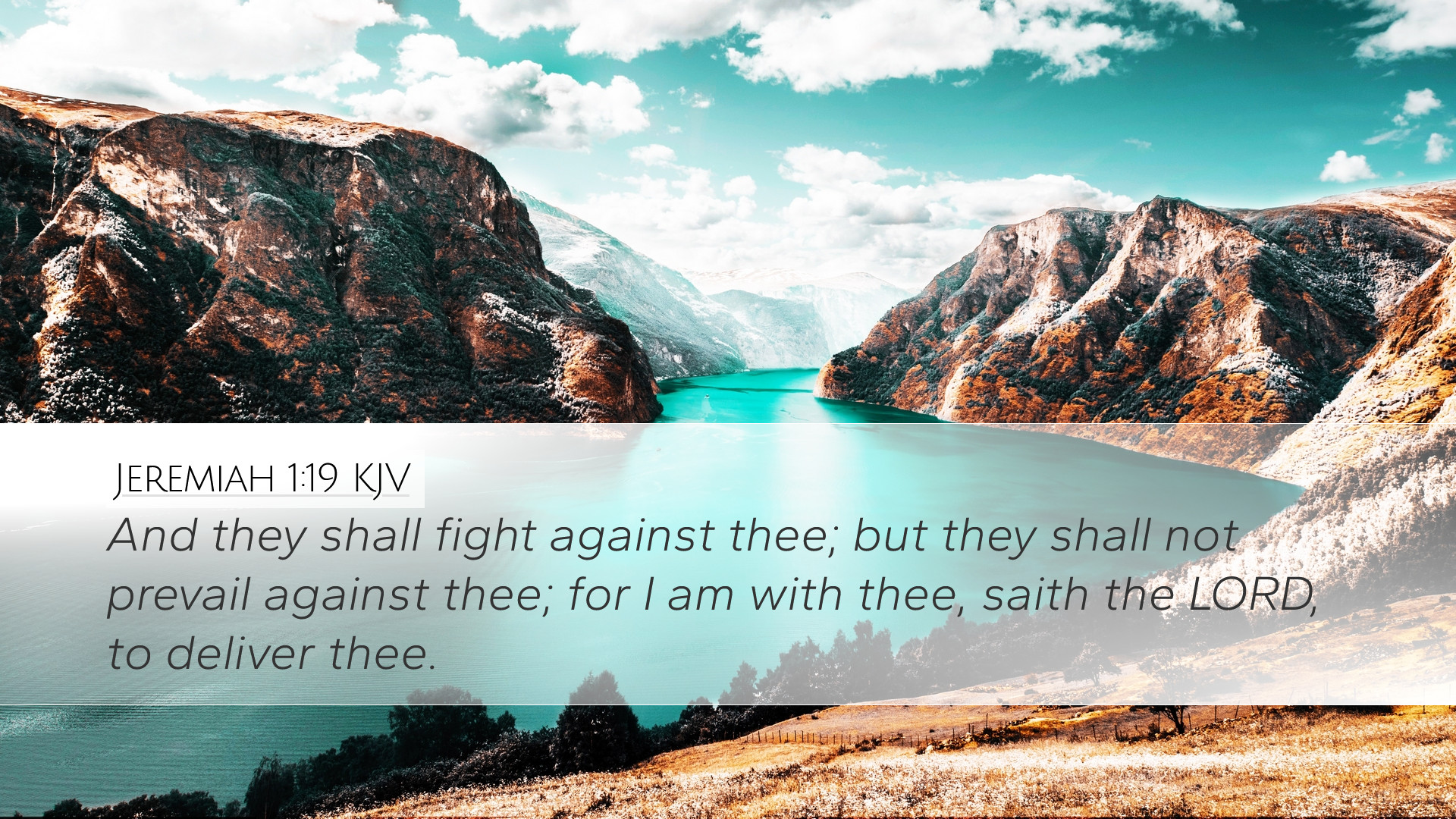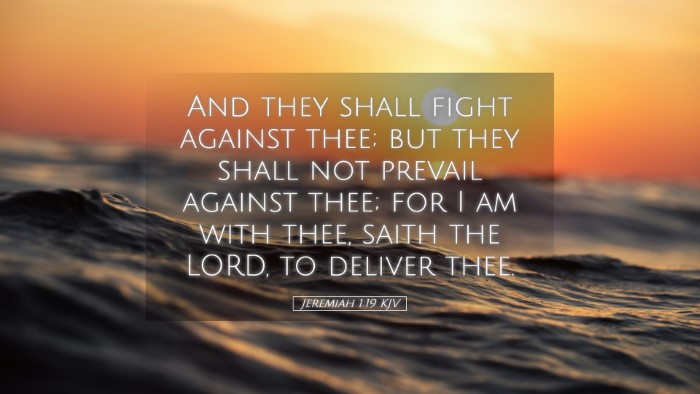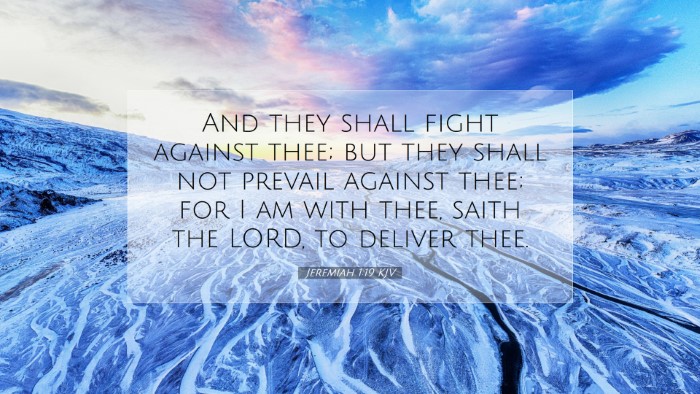Commentary on Jeremiah 1:19
Verse Text: “And they shall fight against thee; but they shall not prevail against thee; for I am with thee, saith the Lord, to deliver thee.”
Introduction
Jeremiah 1:19 encapsulates a profound message of reassurance amidst adversity. The Lord's proclamation to Jeremiah serves not only as a personal assurance for the prophet but also as a theological cornerstone reflecting God's unfailing presence and governance over His prophet’s ministry. This commentary seeks to unpack the implications of this verse drawing insights from established public domain commentaries.
Historical Context
Jeremiah, often referred to as the “weeping prophet,” lived in a tumultuous period marked by moral decay and divine judgment in Judah. His prophetic ministry occurred in the late 7th and early 6th centuries BC, leading up to the Babylonian exile. The struggle Jeremiah faced came from both external opposition by the people and internal resistance within himself.
Analysis of the Prophetic Mission
Jeremiah's call to prophetic ministry, initiated in the preceding verses, highlights the divine purpose and the challenges he would encounter. The particular focus of Jeremiah 1:19 highlights two main themes: opposition he would face and the assurance of God’s presence.
Opposition to Jeremiah's Prophetic Voice
As Matthew Henry notes, the “fight” against Jeremiah symbolizes the breathtaking enmity that the prophet would face from his own people. The rejection of God’s message often leads to fierce resistance from those who oppose the truth; this is a recurring theme in the prophetic books.
-
Nature of the Opposition:
The opposition is not merely physical but also spiritual and political. Albert Barnes elaborates that this opposition would come from various quarters, including the religious leaders who felt threatened by Jeremiah’s prophecies which challenged their authority.
-
Rejection of Authority:
Adam Clarke further emphasizes that the rejection faced by prophets like Jeremiah is reflective of humanity's broader resistance to divine authority - a theme that resonates throughout scripture.
Divine Assurance and Presence
Despite the foreboding challenges, the Lord's assurance, “but they shall not prevail against thee; for I am with thee,” serves as a powerful counterpoint.
-
God’s Sovereignty:
The assurance of divine presence signifies God’s sovereignty over the events that would unfold. Matthew Henry remarks on the invincible strength of God’s support; with God, the odds are always in favor of His chosen vessel.
-
Spiritual Empowerment:
Albert Barnes comments on the role of divine empowerment; the effectiveness of Jeremiah’s ministry would not rely solely on his abilities but on the assured backing of God’s promise. This empowerment is crucial for individuals facing daunting tasks in their ministries.
-
Promise of Deliverance:
The phrase “to deliver thee” encapsulates the promise of salvation that permeates the biblical narrative, reinforcing that divine deliverance is rooted in God’s character. Adam Clarke identifies this as a thematic assurance provided to all who follow God's calling, highlighting the continuity of God’s promise through generations.
Theological Implications
Jeremiah 1:19 invites readers to consider the nature of prophetic ministry in light of spiritual warfare. The challenges that come with pursuing God’s mission are part of the call, yet the overarching certainty is God’s unwavering support.
-
Understanding Spiritual Warfare:
The confrontation between truth and falsehood is a recurring narrative. Every believer is called to engage in this spiritual battle, and Jeremiah's experience illustrates this dynamic vividly.
-
The Role of God’s Presence:
The emphasis on God’s presence serves as a reminder that God equips those He calls. This is a vital encouragement for pastors and leaders, affirming that they are never alone in their ministry.
-
Hope in Adversity:
The assurance provided can be a source of hope for many facing persecution or trials in their spiritual lives, underscoring the faithfulness of God even in the darkest of times.
Conclusion
Jeremiah 1:19 offers profound insights into the nature of God’s call on our lives as His servants. The interplay of prophetic opposition and divine assurance not only reflects the historical context of Jeremiah but also resonates with believers today, challenging them to remain steadfast despite opposition. As highlighted through the commentaries of Henry, Barnes, and Clarke, the elements of spiritual warfare, the promise of God’s presence, and the assurance of deliverance remain pivotal for understanding the life of faith. Ultimately, this verse invites both individual believers and the larger church community to trust in God's abiding presence as they fulfill their divine calling.


